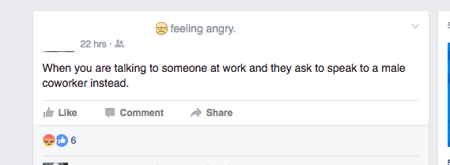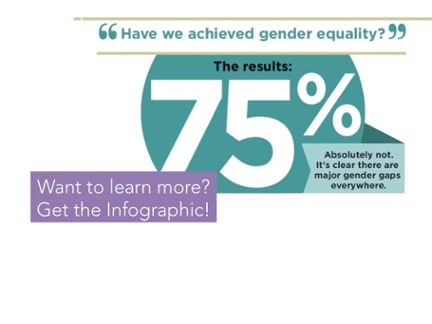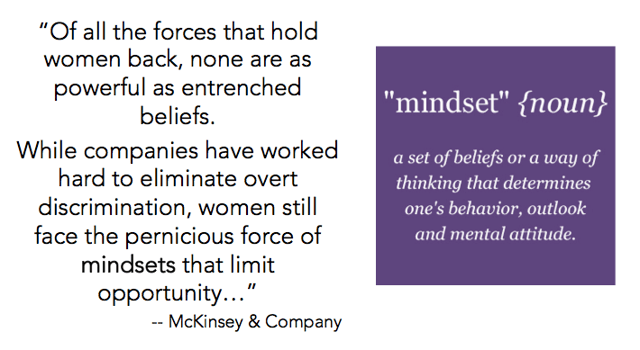3 min read | Samantha Furbush Taraskiewicz

While on Facebook the other day, I came across this post from a friend, who works in HR for a well-known US-based health insurance company, and I could not get what she wrote out of my head.
"When you are talking to someone at work and they ask to speak to a male coworker instead"
 It was the hope of previous generations of working women that this generation of women would not have to deal with gender dynamics like this in the workplace. However, as we found in our recent research "On the Minds of Millennials: Leading Women's Survey on Gender and Careers" 75% of participants said "Absolutely not" when asked if we have achieved gender equality.
It was the hope of previous generations of working women that this generation of women would not have to deal with gender dynamics like this in the workplace. However, as we found in our recent research "On the Minds of Millennials: Leading Women's Survey on Gender and Careers" 75% of participants said "Absolutely not" when asked if we have achieved gender equality. As one respondent told our researcher, Lexi Totrock, "I have been told by my current (male) boss that he's tired of hearing about women's issues because ‘it's not the 70s anymore!’" This belief that we have moved past sexism in the workplace is based on having more women than ever in the workforce and more women in senior positions than in the 70s, but just because we are moving closer to parity, that does not mean we need to stop pushing for it. Susanna Schrobsdorff of TIME so eloquently summed up the problem:
Here’s a number that might come as a surprise: According to a Pew Research survey released in August, most American men—56%—think sexism is over and done with. More than half believe that “the obstacles that once made it harder for women than men to get ahead are now largely gone.” As in disappeared. Past tense. Ancient history.
Of course, most women—63%—disagree.
The entrenched belief that we have moved past sexism - "it is not the 70s anymore" - and that women and men play on a level playing field in the workplace is possibly more harmful to the advancement of women than the overt discrimination that previous generations fought so hard against. It is easy to spot overt discrimination - maybe not so easy to fight it, but you can name, and then work tirelessly to fight against it. In my friend's case, what looked to be a normal day-to-day conversation with her colleague was more subtle - a case of a micro-inequity - where a person's mindset can hinder a potential leader before she gets the chance to move up in the organization. If her colleague does not trust her judgment on this issue, but values the opinion of her male counterpart, who is more likely to get the next promotion? Who is more likely to get asked to join a round table or task force?

Did my friend's colleague know what he was doing or implying when he asked to speak to her male coworker? Probably not. But that is no excuse for the behavior, and shows an ingrained mindset that is so prevalent in our society. Leading Women offers insights and solutions to address the ways hidden gender bias impacts 4 of these key talent systems. We help you to Create a Level Playing Field within your organization.







